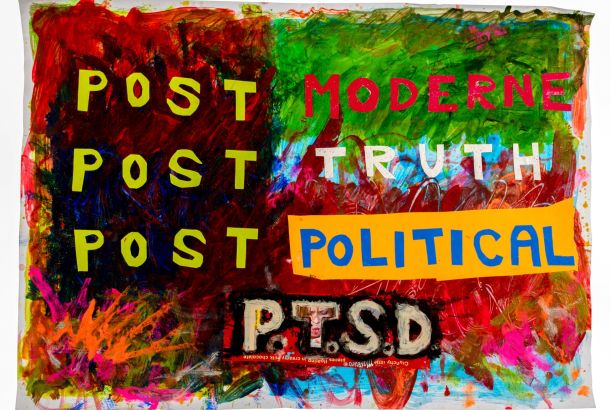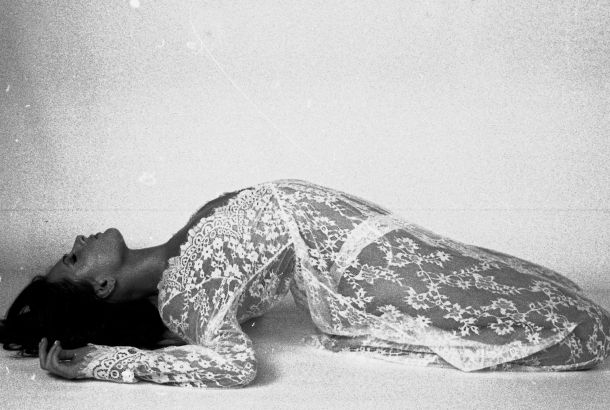Review: Golem
By Rob Paterson
As I exited the theatre, it was hard to tell if I had actually left the absurd world of ‘Golem’; the scene that met my eyes was one that could be replicated in any given room in 2015. It was a wash of identical glass rectangles attached firmly to human thumbs and glazed-over stares. This snapshot of how we live now could have been lifted straight from a satirical cartoon, and was exactly the kind of image that pioneering company 1927 had sliced up, warped and smudged into the terrifying collage of consumerism that I had just watched.
I can hear my readers flickering off like the touch screens that your’re probably reading this on, and I don’t blame you; the whole Black Mirror thing is done to death. But ‘Golem’ is far cleverer and more appealing than metaphors hastily thrown together by a pretentious journalist. Directed by Suzanne Andrade, ‘Golem’ is one of the most visually and theatrically stunning pieces I’ve seen in a while. Performed by five multi-rolling actors against a giant projection screen, the characters interacted with, and integrated into, a multitude of fantastical environments. From actors walking on the spot and having the street unfurl ahead of them, to Annie Hall-style subtextual subtitles appearing above characters’ heads as they speak, there’s barely a moment without surprise and ingenuity.
The projected animation itself is far from instrumental to party tricks, but serves an integral role in their meticulously-thought-out aesthetic. It features cut-outs of 1920s style photographs, which hark back to the golden age of consumerism. This is compounded by a jazzy soundtrack and noir style spotlights erasing backdrops. Most of these backdrops are cartoons, with which the actors meld seamlessly due to their nuanced performances, where every movement is stuttered and exaggerated. After 20 minutes in I had forgotten that the screen and the actors were separate.
Despite 1927’s relentless intelligence (in one scene a bathroom attendant is reading Sartre, for Christ’s sake), their sense of humour is decidedly crass. One particularly outrageous moment came when one of the actors stuck their face through a hole in the screen to have the body of an overweight stripper projected on to them, which proceeded to perform ridiculous contortions. Film animator and designer Paul Barritt’s creation, the comedic tone, and the 90-minute run time make big ideas easy to swallow.
In many ways, I was reminded of the last play I saw at HOME; Kneehigh’s Dead Dog in A Suitcase. It too was crass, stylish and visually stunning, but ‘Golem’ triumphs in a way that many plays of this nature fall flat. Where many of the scenes in ‘Dead Dog’ did little more than dazzle and delight the audience, ‘Golem’ avoids becoming a circus and puts story and message first. This is not to say it comes across as preachy; the parallels drawn to modern life are subtle, but expansive. It’s the kind of theatre that sticks with you, and makes me shudder on recollection, despite having me in stitches at the time.
My criticisms are few; the live music seemed redundant given that you couldn’t audibly distinguish it from the soundtrack, and the rapid scene changes often slowed the pace. Overall, an impressive case of high concept and ambitious direction coming together to their full potential.
‘Golem’ ran at HOME until Saturday the 17th of October.







